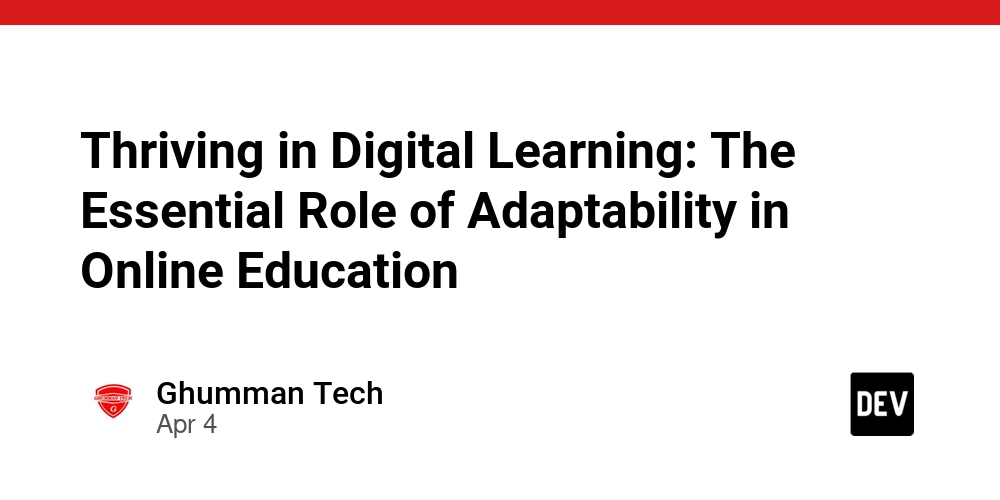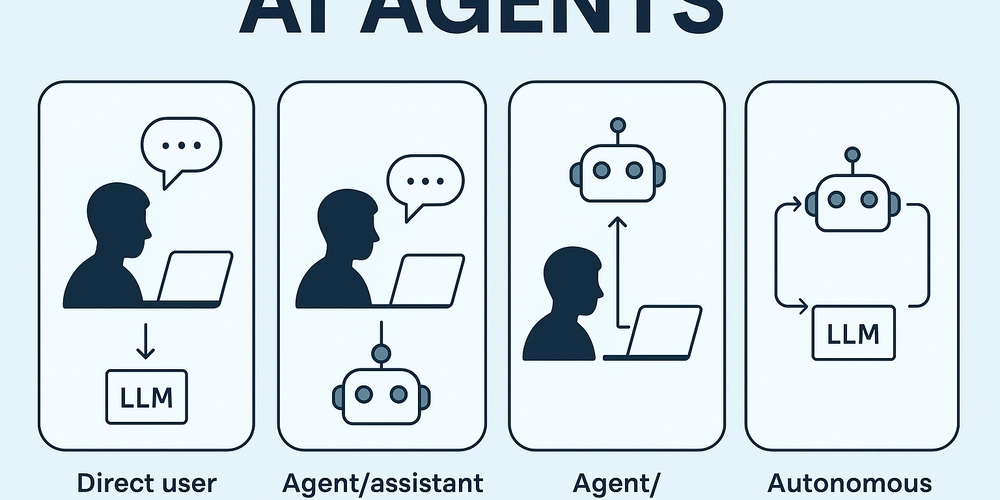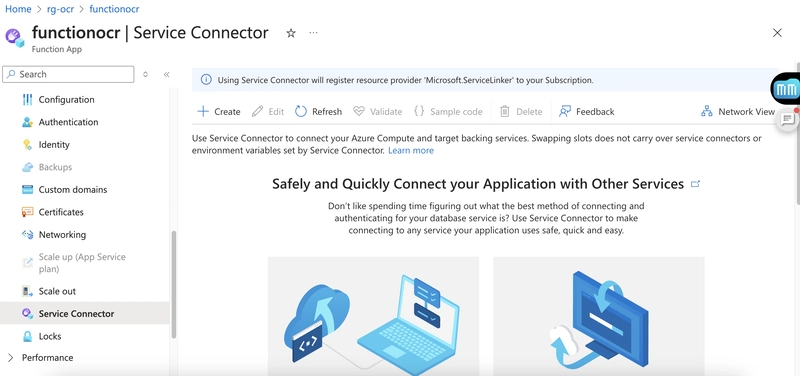Thriving in Digital Learning: The Essential Role of Adaptability in Online Education
We live in an era where technology and digital proficiency are not just novelties, but necessary skills for survival in nearly every sphere of our lives. Learning and education are no exceptions. One of the biggest changes we've seen in recent years is the shift towards online education, pushing the importance of adaptability to the forefront of learning dynamics. Adaptability in today’s ever-evolving world is a non-negotiable quality, specifically in the realm of online education. It was previously seen as a luxury option for individuals with time constraints, geographical limitations, or those just drawn to more modern methods of schooling. However, with COVID-19 making traditional learning environments risky, online education has quickly morphed from an option to a necessity, redefining the education field in the process. So, why is adaptability so crucial in online education? Firstly, adaptability allows learners and educators alike to adjust swiftly to new learning or teaching methods. The transition from face-to-face learning to staring at a computer screen can be jarring. Being adaptable makes the shift less taxing. Educators have to adjust their teaching methodologies to cater to a digital audience, focusing on engagement in a new environment. Students, on the other hand, have to take responsibility for their online learning, managing their time well, keeping track of deadlines, and proactively seeking help when necessary. Furthermore, the unpredictable technology landscape demands constant adaptation. Online education platforms are continually evolving, integrating new features to enhance the learning experience. One must be ready to learn new technologies, applications, and tools at a moment’s notice. Failure to adapt to these changes can inevitably lead to a compromised learning or teaching experience. In addition, the digital space is notorious for its distractions. Students need to adapt to studying effectively despite these disturbances. The adaptability to create a conducive studying environment, limit distractions, and develop routines to maintain focus during classes is crucial in online education. Moreover, adaptability helps in dealing with the unforeseen instances that the online world often presents. Internet connectivity issues, software glitches, or hardware breakdowns are just a few technical challenges that one has to be prepared for. Being adaptable aids swift resolution in these situations, minimizing the interruption in the learning process. Adaptability also fosters resilience. The struggle to adapt to online learning, the technical hiccups, and the lack of traditional classroom interactions can be overwhelming. However, an adaptable student or teacher will bounce back from these setbacks more easily, exploring alternatives and learning from the experience. Lastly, by being adaptable, students can benefit from personalized learning paths online education offers. Each learner is unique, with different learning styles and pace. Online platforms often allow customization to meet individual needs. Adaptability, therefore, facilitates the exploitation of these benefits, maximizing the learning outcome. In conclusion, adaptability in the realm of online education is not a mere convenience but an essential attribute for successful learning and teaching. As digital platforms continue to revolutionize the way we learn, our ability to change, learn, and grow has never been more important. After all, in the words of Alvin Toffler, "The illiterate of the 21st century will not be those who cannot read and write, but those who cannot learn, unlearn, and relearn." Embracing adaptability will not just enhance the online education experience but prepare us for a relentlessly changing global landscape.

We live in an era where technology and digital proficiency are not just novelties, but necessary skills for survival in nearly every sphere of our lives. Learning and education are no exceptions. One of the biggest changes we've seen in recent years is the shift towards online education, pushing the importance of adaptability to the forefront of learning dynamics.
Adaptability in today’s ever-evolving world is a non-negotiable quality, specifically in the realm of online education. It was previously seen as a luxury option for individuals with time constraints, geographical limitations, or those just drawn to more modern methods of schooling. However, with COVID-19 making traditional learning environments risky, online education has quickly morphed from an option to a necessity, redefining the education field in the process.
So, why is adaptability so crucial in online education?
Firstly, adaptability allows learners and educators alike to adjust swiftly to new learning or teaching methods. The transition from face-to-face learning to staring at a computer screen can be jarring. Being adaptable makes the shift less taxing. Educators have to adjust their teaching methodologies to cater to a digital audience, focusing on engagement in a new environment. Students, on the other hand, have to take responsibility for their online learning, managing their time well, keeping track of deadlines, and proactively seeking help when necessary.
Furthermore, the unpredictable technology landscape demands constant adaptation. Online education platforms are continually evolving, integrating new features to enhance the learning experience. One must be ready to learn new technologies, applications, and tools at a moment’s notice. Failure to adapt to these changes can inevitably lead to a compromised learning or teaching experience.
In addition, the digital space is notorious for its distractions. Students need to adapt to studying effectively despite these disturbances. The adaptability to create a conducive studying environment, limit distractions, and develop routines to maintain focus during classes is crucial in online education.
Moreover, adaptability helps in dealing with the unforeseen instances that the online world often presents. Internet connectivity issues, software glitches, or hardware breakdowns are just a few technical challenges that one has to be prepared for. Being adaptable aids swift resolution in these situations, minimizing the interruption in the learning process.
Adaptability also fosters resilience. The struggle to adapt to online learning, the technical hiccups, and the lack of traditional classroom interactions can be overwhelming. However, an adaptable student or teacher will bounce back from these setbacks more easily, exploring alternatives and learning from the experience.
Lastly, by being adaptable, students can benefit from personalized learning paths online education offers. Each learner is unique, with different learning styles and pace. Online platforms often allow customization to meet individual needs. Adaptability, therefore, facilitates the exploitation of these benefits, maximizing the learning outcome.
In conclusion, adaptability in the realm of online education is not a mere convenience but an essential attribute for successful learning and teaching. As digital platforms continue to revolutionize the way we learn, our ability to change, learn, and grow has never been more important. After all, in the words of Alvin Toffler, "The illiterate of the 21st century will not be those who cannot read and write, but those who cannot learn, unlearn, and relearn." Embracing adaptability will not just enhance the online education experience but prepare us for a relentlessly changing global landscape.










































































































































































![[The AI Show Episode 142]: ChatGPT’s New Image Generator, Studio Ghibli Craze and Backlash, Gemini 2.5, OpenAI Academy, 4o Updates, Vibe Marketing & xAI Acquires X](https://www.marketingaiinstitute.com/hubfs/ep%20142%20cover.png)



























































































































![[FREE EBOOKS] The Kubernetes Bible, The Ultimate Linux Shell Scripting Guide & Four More Best Selling Titles](https://www.javacodegeeks.com/wp-content/uploads/2012/12/jcg-logo.jpg)



![From drop-out to software architect with Jason Lengstorf [Podcast #167]](https://cdn.hashnode.com/res/hashnode/image/upload/v1743796461357/f3d19cd7-e6f5-4d7c-8bfc-eb974bc8da68.png?#)






































































































.png?#)




.jpg?#)
































_Christophe_Coat_Alamy.jpg?#)







































































































![Rapidus in Talks With Apple as It Accelerates Toward 2nm Chip Production [Report]](https://www.iclarified.com/images/news/96937/96937/96937-640.jpg)









































































































































